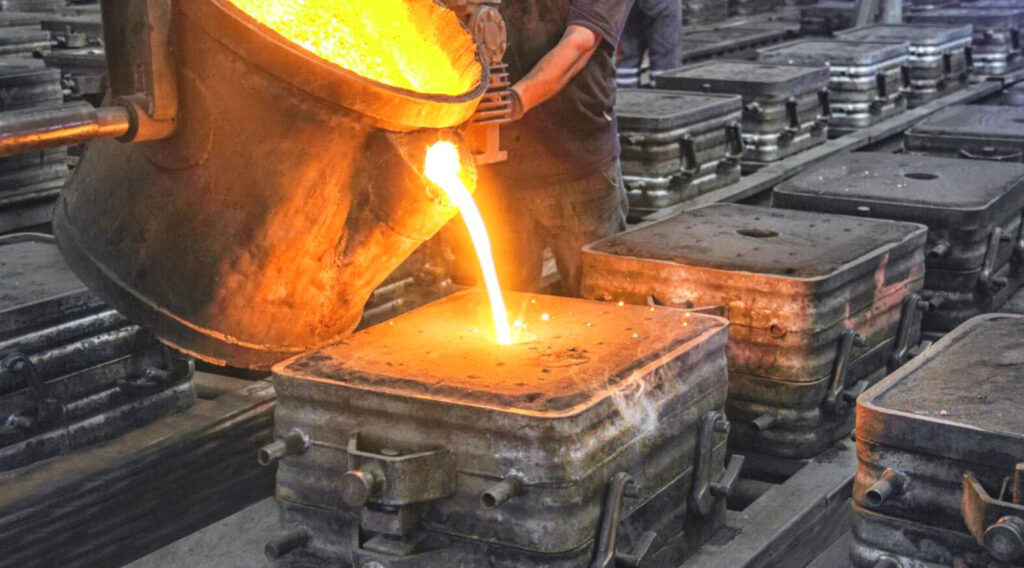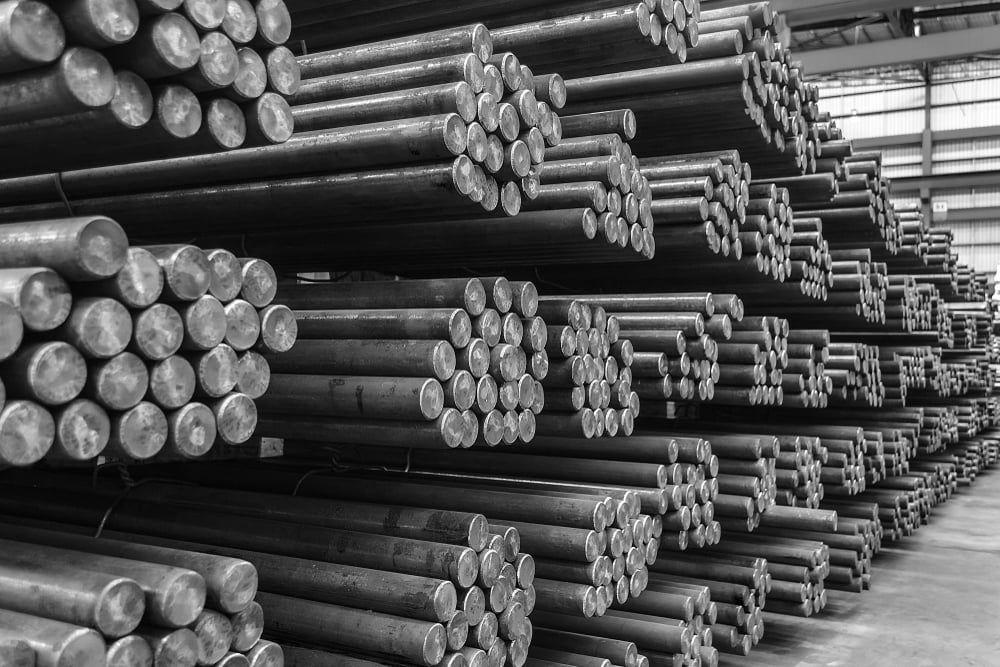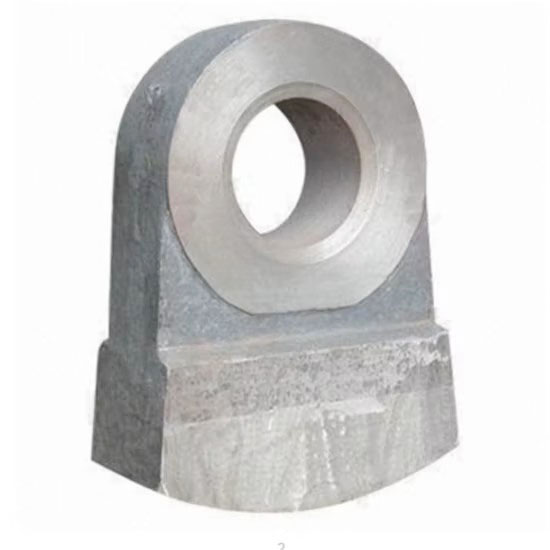How to Choose the Right Material for Crusher Wear Parts

INTRODUCTION
Crusher wear parts are essential components in the mining, quarrying, and construction industries. The performance and lifespan of these parts directly affect crusher efficiency, maintenance costs, and overall productivity. One of the most important factors to consider when selecting crusher wear parts is the material composition. Choosing the right material can significantly improve wear resistance, reduce downtime, and maximize the return on investment (ROI).
In this article, we will provide an in-depth guide on how to choose the right material for crusher wear parts. We will compare the most common materials used in wear-resistant components, including manganese steel and high chrome iron. We will also explore material selection criteria based on crusher type, feed material, operating conditions, and desired performance outcomes.

1.Understanding Crusher Wear Parts
Crusher wear parts refer to the replaceable components that are subject to constant wear during the crushing process. These include:
Jaw plates for jaw crushers
Mantles and concaves for cone crushers
Impact plates (blow bars) for impact crushers
Hammers for hammer crushers
Side liners, cheek plates, and toggle plates
Each of these parts plays a crucial role in the crushing process. When subjected to abrasive or high-impact forces, the wear rate of these components depends largely on the material used in manufacturing.
2. Common Materials Used in Crusher Wear Parts
2.1 Manganese Steel (Hadfield Steel)
Manganese steel is the most widely used material for crusher wear parts. It is known for its excellent work-hardening properties, making it ideal for high-impact and abrasive applications.
Composition: Typically 12% to 24% manganese, with carbon content between 1.0% and 1.4%.
Key Advantages:
Excellent toughness
Good resistance to wear and impact
Self-hardening under impact
Applications:
Jaw plates for jaw crushers
Mantles and concaves for cone crushers
Blow bars for impact crushers (in some cases)
Manganese steel becomes harder when subjected to impact or high-pressure loads. This work-hardening property enables it to withstand repeated shock and grinding, especially in primary crushing applications.
ASTM A128/A128M-19 Standard Specification for Steel Castings, Austenitic Manganese

2.2 High Chrome Iron (Cr Iron)
High chrome iron is known for its superior hardness and resistance to abrasion. It is commonly used in applications where wear is primarily caused by high-speed impacts rather than compressive forces.
Composition: Typically contains 12% to 30% chromium and 1.5% to 3% carbon.
Key Advantages:
Excellent wear resistance
High hardness
Good corrosion resistance
Applications:
Blow bars for impact crushers
Liners for vertical shaft impact crushers (VSI)
Wear parts in fine crushing
However, high chrome iron is brittle compared to manganese steel and is not suitable for applications involving high compressive loads or tramp iron.
2.3 Medium Chrome and Low Chrome Alloys
Some manufacturers offer wear parts made from medium chrome or low chrome alloys, which are cost-effective options with moderate wear resistance and toughness. These materials are typically used in less demanding applications.
2.4 Other Alloy Steels
For specific conditions, manufacturers may use alloyed steels with molybdenum, nickel, or vanadium to enhance properties such as heat resistance, toughness, or corrosion resistance.
Abrasive Wear Behavior of High Chromium Cast Iron and Hadfield Steel—A Comparison
3. Factors to Consider When Selecting Materials
3.1 Type of Crusher
The crusher type significantly influences material selection. Different crushers operate using distinct mechanisms that place unique demands on wear parts:
Jaw Crusher: Requires high impact and compressive strength. Manganese steel is typically used.
Cone Crusher: Needs excellent compressive strength and toughness. Manganese steel (18% or 21%) is commonly used.
Impact Crusher: Faces high-speed impacts. High chrome blow bars offer better performance.
Hammer Crusher: Requires a balance between impact resistance and wear life. Manganese steel or alloy hammers are used.
3.2 Feed Material Properties
Abrasiveness: Highly abrasive materials (e.g., granite, basalt) require harder materials like high chrome.
Hardness: Harder feed requires more wear-resistant materials.
Moisture Content: High moisture can cause clogging and reduce efficiency, requiring tougher materials.
3.3 Operating Conditions
Crushing environment: Dry or wet conditions affect wear behavior.
Crusher speed and power: High-speed crushers demand materials with better impact resistance.
Tramp metal risk: High toughness (e.g., manganese steel) is preferred to withstand sudden impacts.
3.4 Desired Wear Life vs. Cost
The right material should balance initial cost and wear life. For example, while high chrome parts are more expensive, they offer longer wear life in specific applications, which can reduce downtime and maintenance costs.
4. Material Comparison Table
| Property | Manganese Steel | High Chrome Iron | Medium Chrome | Alloy Steel |
|---|---|---|---|---|
| Hardness | Low (work hardens) | Very High | Medium | Variable |
| Toughness | Excellent | Low | Medium | Good |
| Wear Resistance | Good | Excellent | Moderate | Variable |
| Impact Resistance | Excellent | Poor | Fair | Good |
| Cost | Moderate | High | Low | Medium |
| Applications | Jaw, Cone | Impact, VSI | Secondary crushing | Custom |
5. Application-Based Recommendations
5.1 Jaw Crusher Wear Parts
Recommended Material: 18% or 21% Manganese Steel
Jaw crushers deal with large feed sizes and compressive forces. High manganese steel provides the toughness and work-hardening capability needed for long life.
5.2 Cone Crusher Liners
Recommended Material: Manganese Steel (18–21%)
Cone crushers require durable liners that can withstand compressive forces and repeated impacts. Manganese steel offers the optimal balance.
5.3 Impact Crusher Blow Bars
Recommended Material: High Chrome Iron (Martensitic or Ceramic Inserts)
For high-speed impact crushing, high chrome provides superior wear resistance. For tough applications, hybrid bars with ceramic inserts can extend life.
5.4 Hammer Crusher Hammers
Recommended Material: Manganese Steel or Chromium Alloy Steel
Manganese is preferred for primary impact, while chromium alloys suit secondary crushing with lower impact loads.
6. Enhancing Performance Through Material Upgrades
6.1 Ceramic Inserts
Ceramic inserts in blow bars and hammers increase wear life significantly without compromising overall part integrity.
6.2 Bimetallic Components
Combining two materials (e.g., a manganese base with a chrome overlay) can improve performance in specific applications.
6.3 Heat Treatment Optimization
Proper heat treatment enhances the hardness and toughness of wear parts, ensuring optimal performance.
7. Partnering with the Right Manufacturer
Choosing the right material is only part of the equation. Working with a reputable crusher wear parts manufacturer ensures that materials are properly selected, processed, and tested.
Look for a supplier who:
Offers material consultation
Provides test reports and traceability
Supports customization based on working conditions
Maintains high quality control standards
At Econe Industry Co., Ltd., we specialize in producing wear-resistant crusher parts tailored to your needs. Our wide range of crusher spare parts, including jaw plates, mantles, concaves, and impact plates, are made from premium-grade materials and manufactured to ensure long-lasting performance.
Conclusion
The choice of material plays a critical role in the durability and performance of crusher wear parts. Whether you’re operating a jaw, cone, impact, or hammer crusher, selecting the right material—be it manganese steel, high chrome iron, or a custom alloy—can significantly affect your crusher’s efficiency and operating costs.
By understanding the properties of each material and matching them with your specific operating conditions, you can improve wear part performance, reduce downtime, and enhance profitability.
For expert advice and high-quality crusher wear parts, contact us today and discover how we can help extend the life of your equipment.
Email: [ljj2914@163.com]
WhatsApp: [+86-15057941949]
Website: https://crusherwearpartspro.com/
Get In Touch – Let’s optimize your crushing performance together!
